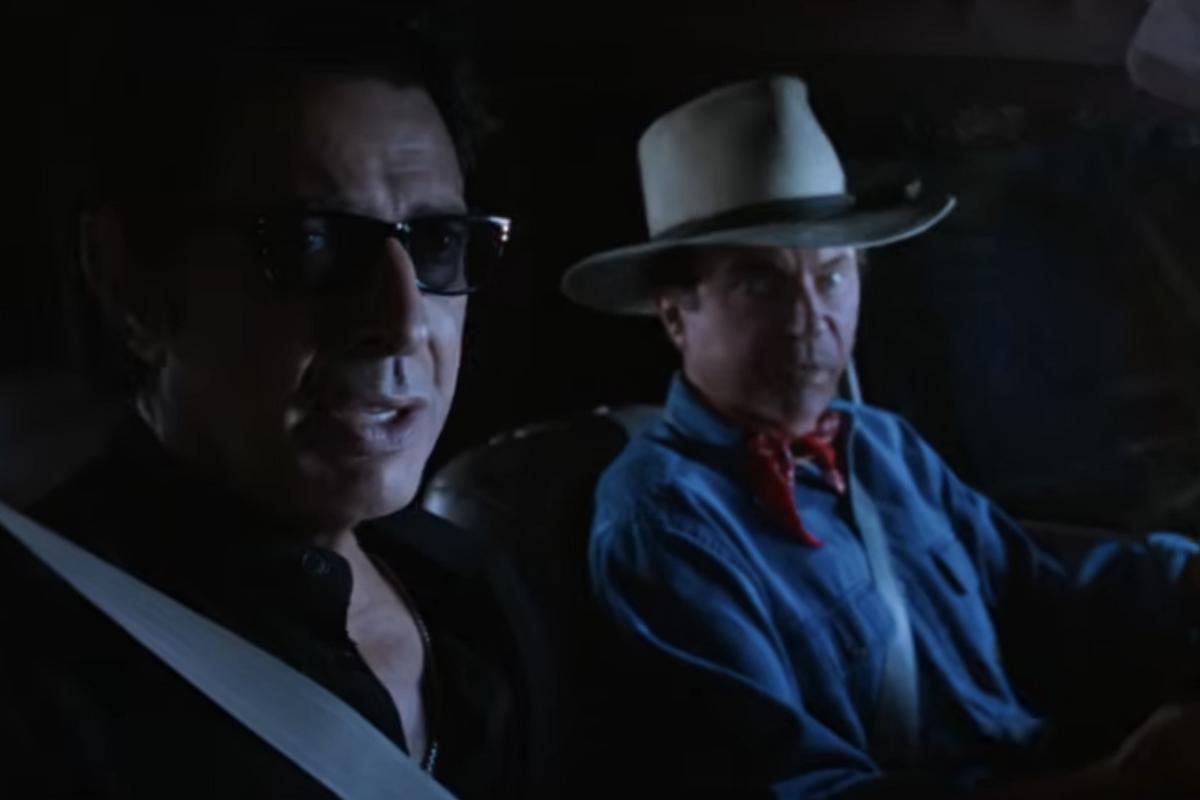Marissa Bode had all but given up on the idea she would get the part of Nessarose in Jon M. Chu’s feature adaptation of Wicked.
“My last callback that I had, prior to that, I didn’t think that I got it. I hadn’t heard back from casting,” Bode tells The Hollywood Reporter about her bid to land a part in the beloved stage musical. To distract herself, the 24-year-old says she made a “cute little spooky video” about witches, “not even thinking about Wicked.”
But just two days after uploading the video to Instagram, she heard back from casting about another Zoom callback with Chu, who she says told her to be careful about posting a witch-themed video because no one knew she was up for the role of Nessarose.
“I was like, ‘Oh my God, I ruined it for myself. Jesus Christ,’ ” she says. On that same call, Chu suddenly told her someone was knocking on his door, at which point he went to open it with his computer in tow. “He opens the door taking his Zoom camera with him, and he turns the camera around. It’s Ariana [Grande] and Cynthia [Erivo] with a sign that says, ‘Welcome to Oz, will you be our Nessarose?’ ”
Nessarose is the sister of the wicked witch Elphaba, portrayed by Erivo. Her relationships with Elphaba and with fellow Shiz University student Boq, portrayed by Ethan Slater, play a pivotal role in the original Wicked musical’s second act, slated to be released in movie form next year.
For Bode, it was important to get those key moments between her character and Slater’s Boq just right. “[The Oz Dust scene where the students sneak out to a dance club] is so important and pivotal for both of our characters for what’s to come,” Bode says. “It really flushes out our relationship and what we mean to one another.
“This is Nessa’s first time where she really feels seen by a boy, and then this is a moment for Boq to feel like he has found a friend and that sense of belonging,” she adds.
Bode’s character of Nessarose also has a complicated relationship with her sister, Elphaba. Achieving that onscreen chemistry with Erivo was easy, Bode says, thanks to the latter’s personality. “Cynthia already has a very nurturing characteristic to her in her everyday life, and she is always on top of it and looking out for other people,” Bode says of her co-star. “I don’t think it was too difficult to have that transfer over to the screen.”
Nessarose uses a wheelchair, but no one who played the role in Wicked’s 20-plus-year Broadway run uses a wheelchair in real life. The actress says she first saw the stage musical at age 11 or 12, and it proved a formative moment for her. “That was my first time ever seeing a character in a wheelchair onstage,” she says.
“It was really important to me to honor the wonderful work that has been done in this stage musical while also making it my own and bringing my own experiences as somebody who is disabled into this role as well,” Bode adds. “I hope audiences know there was a lot of care put in.”
To Bode, the role meant keeping in mind the younger version of herself that didn’t see herself represented onscreen. “I think 11-year-old me would be just as shocked as I am now and also hopefully proud and know that disability really is not as scary as you’ve been taught,” she explains.
“Or something that needs to be fixed.”
Bode hopes that her role in the musical can help move the needle in the film world. “Something that I would love to transfer over to nondisabled people is [to] cast more disabled people. Make sure your everyday spaces are accessible, even if you’re not in the casting world,” she says. “Don’t wait for a disabled person to enter your space to make it accessible. Nobody is promised that they won’t be disabled tomorrow. Anything can happen.
“Listen to the disabled community rather than hearing it from a lens that isn’t told by us,” she adds. “And hear multiple disabled perspectives.”

Marissa Bode (left) as Nessarose and Cynthia Erivo as Elphaba in Universal’s Wicked.
Giles Keyte/Universal Pictures
As Bode considers her career post-Wicked (although the second part is slated for release in November, both films have already been shot), she hopes to take on a wide variety of parts. “I would love in the future to take on more roles that the disability isn’t the full focus the whole time because that’s just not realistic,” she says.
“Think about accessibility or think about disabled people and acknowledge the disability. If you don’t acknowledge it, you can’t make your space accessible, but just don’t make it that big of a deal,” Bode says. “We are literally just human beings existing alongside of you.
“There’s so much more to me and so much more in conversation than just my disability, too. Although it’s something I talk about a lot — because I think when you bring up conversation, that’s how progress can be made — but it’s not like that’s every conversation I’m talking to my friends about,” she continues. “I’m talking about a million other different things than just me being disabled because, duh, I’m a 24-year-old woman just as much as the next person.”
This story first appeared in a December stand-alone issue of The Hollywood Reporter magazine. To receive the magazine, click here to subscribe.







